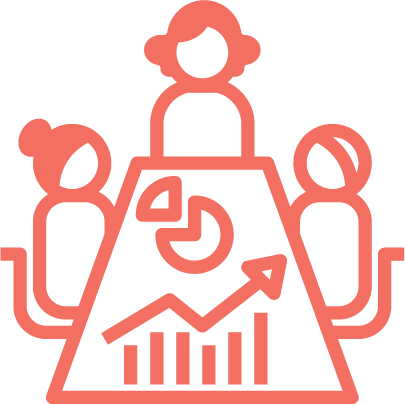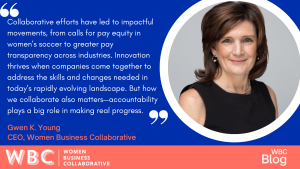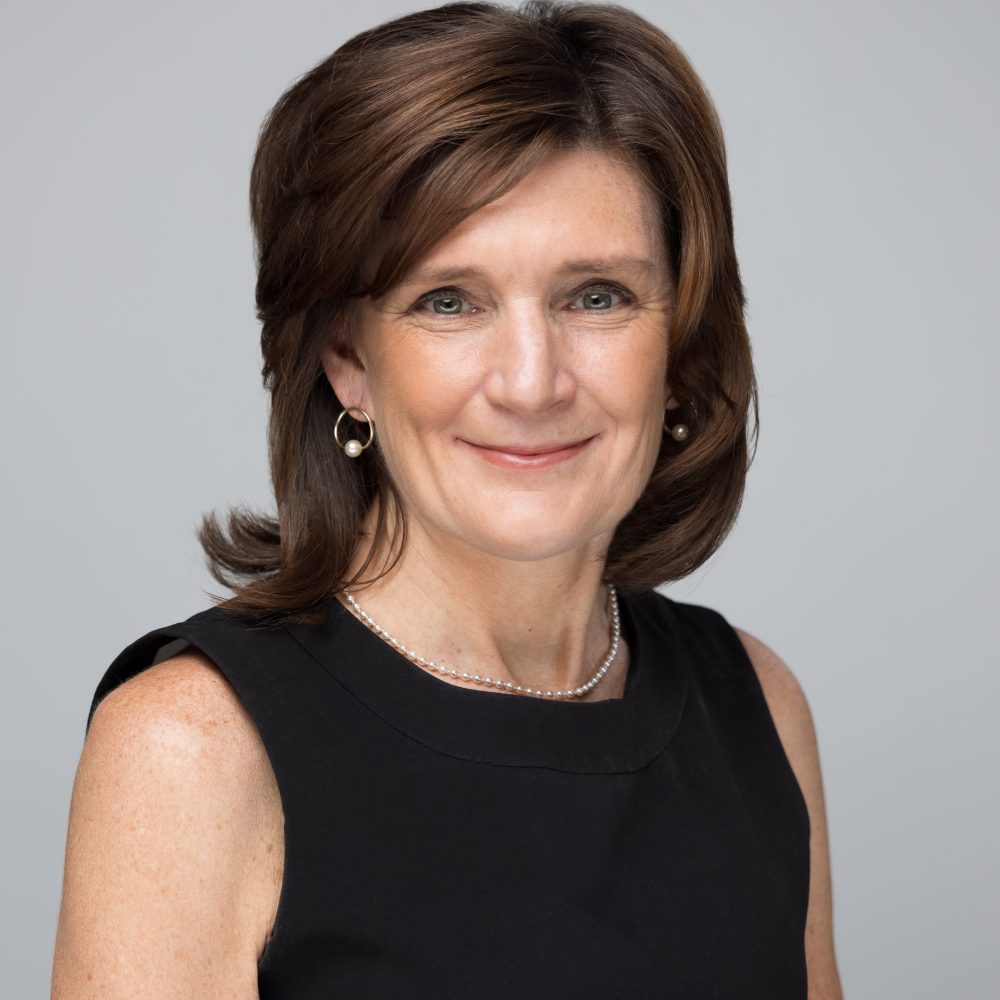With our world evolving at a rapid pace, the call for more women in leadership has never been more urgent. Recent elections and current events make it clear: while significant challenges remain, there’s enormous potential—and a pressing need—for women to step up as leaders across politics and business. Supporting women in leadership isn’t just the right thing to do—it’s a smart move for any organization. Empowering women enhances company culture, boosts innovation, and can improve overall performance. Gender equity is an investment that not only brings social progress but also strengthens businesses in the long run.
Across all sectors, we’re seeing how essential collaboration is in making lasting progress. For us at the Women Business Collaborative (WBC), collaboration isn’t just a value—it’s our mission. We’re committed to achieving equal pay, equal opportunity, and equal representation for all women in business. Through partnerships across the private and public sectors, we’re pushing forward together.
Collaborative efforts have led to impactful movements, from calls for pay equity in women’s soccer to greater pay transparency across industries. Innovation thrives when companies come together to address the skills and changes needed in today’s rapidly evolving landscape. But how we collaborate also matters—accountability plays a big role in making real progress.
Here are some key ways that collaboration drives change:
- Building Influence Through Networks: Industry groups and associations are powerful networks for leaders to connect, grow, and exchange insights. These alliances amplify leaders’ voices, enabling them to learn from one another and build lasting professional relationships.
- Advocating for Change Together: When organizations join forces, they can make a stronger case for change. Collective voices bring attention to issues, create accountability, and promote advocacy that benefits all employees, building a more equitable workplace for future generations.
- Amplifying Women’s Collective Voice: One of the most powerful tools for women in the workplace is amplifying each other’s ideas and achievements. Studies show that when women support one another professionally, their influence and visibility increase, creating a supportive and empowering work environment.
- Cross-Generational Learning: Women in leadership today can benefit from the wisdom of those who came before, while also sharing insights with younger generations. This type of collaboration brings together fresh perspectives and seasoned knowledge, strengthening the path forward for women.
- Ensuring Accountability: Organizations need to be accountable for their commitments to gender equity. By tracking progress, leaders can ensure that their efforts make a real difference and stay on course.
Organizations like WBC offer platforms for companies to share knowledge, advocate for women’s leadership, and drive forward-looking change. This solidarity not only uplifts individual women but also encourages organizations to value diverse perspectives and reflect the communities they serve.
As more women rise into leadership roles, collaboration will be key to making sure progress is steady and lasting. Through mentorship, cross-generational learning, and alliances across sectors, we create a strong support system that enables women to succeed and lead. By lifting each other up and fostering inclusive environments, we build a cycle of success that reshapes leadership and drives positive change across industries and cultures.
-
Gwen K. Young is the CEO of the Women Business Collaborative. She is also a Visiting Scholar at the Elliot School of International Affairs, George Washington University and former Director of the Global Women’s Leadership Initiative at the Wilson Center. She is an Advisor to Concordia.
Ms. Young has worked across the globe to promote economic development, good governance and peace. She has developed strategy, programming and advocacy in the areas of humanitarian policy, international affairs and international development. This includes developing public private partnerships focused on public health, agriculture, gender equality, and access to finance. Further, Ms. Young has advocated for and published on international criminal law and designed SGBV guidelines. As an attorney, Ms. Young has worked as a professional advocate for women and human rights in corporate law settings, with the ICTY and the Kroc Institute for Peace and Justice at the University of San Diego.
Gwen K. Young is the CEO of the Women Business Collaborative. She is also a Visiting Scholar at the Elliot School of International Affairs, George Washington University and former Director of the Global Women’s Leadership Initiative at the Wilson Center. She is an Advisor to Concordia.
Ms. Young has worked across the globe to promote economic development, good governance and peace. She has developed strategy, programming and advocacy in the areas of humanitarian policy, international affairs and international development. This includes developing public private partnerships focused on public health, agriculture, gender equality, and access to finance. Further, Ms. Young has advocated for and published on international criminal law and designed SGBV guidelines. As an attorney, Ms. Young has worked as a professional advocate for women and human rights in corporate law settings, with the ICTY and the Kroc Institute for Peace and Justice at the University of San Diego.
Her career has encompassed a comprehensive array of international organizations including the Bill & Melinda Gates Foundation, Medecins Sans Frontieres, International Rescue Committee, and the Harvard Institute for International Development. An alumna of Smith College, Harvard’s Kennedy School of Government and the University of California Davis, School of Law, Ms. Young has pursued a career of international public service focused on humanitarian relief, international development, and human rights starting with gender equality and equity.
View all posts









